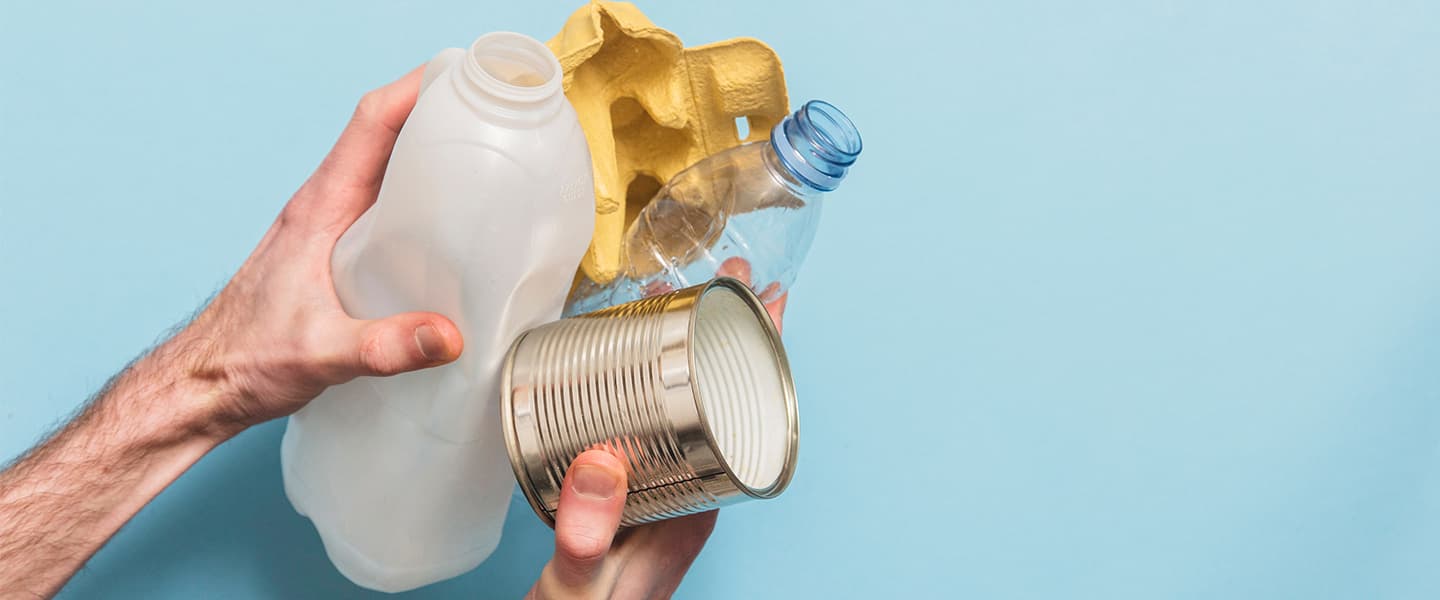5 tips for recycling at home
99% of Britons actively recycle in order to do their bit for the planet. This is great and shows a growing awareness that our rubbish doesn’t disappear when we throw it away but instead can stick around for years and even add to ocean pollution.
So we know it’s important, but are we doing this recycling thing right? With every council having different rules, it’s easy to get muddled on what you can and can’t put in your recycling bin and if we're unsure many of us default to putting things in the recycling over general waste. What if we knew that this could actually lead to even less being recycled? When we put the wrong things in recycling it causes contamination and can make the whole collection unrecyclable.
Fear not, we've got some tips and tricks to help you recycle properly.
These tips are part of something bigger. At Hubbub, we want to see a world where everyone makes choices that are good for the environment. Check out what we do and how your actions add up.
1) Get the bins
Get started by finding out what materials are accepted by your council’s curbside waste collection. You can check the rules for your area here. They should provide you with the specific bins and details of what can and can’t go in them, but if you like, you can buy your own matching or coloured ones to use inside your home. If you’ve got kids, you might want to decorate or label them clearly to make recycling easier and more fun for them!
2) Give stuff a rinse
Getting as much food out as you can makes plastic and aluminium much easier to recycle and prevents contamination. It’s best if you can give your recycling a rinse before putting it in the bin, but just a quick one, it’s not a bubble bath! To save water you could use leftover water from your washing up bowl. (Remember it’s also easiest to do this as soon as you empty the package, before the food dries up.)
3) Check the labels
Sometimes it can be easy to mix up 'recyclable' for 'widely recycled'. For example, certain plastics are technically ‘recyclable’ but might not be accepted by your council as they need a different process. Check the labels of your packaging and be sure to only put things that are widely recycled in your local collection bins.
4) Avoid some materials
Certain materials are just harder or not possible to recycle, so where possible, try and avoid them. For example, black plastics are often coloured with carbon black which many recycling facilities can’t detect against the waste sorting conveyor belts, making it difficult to sort and recycle. This means a lot of black plastic is burned or ends up in landfill, so trying to buy clear or white plastic at the supermarket is better. Aerosol cans are also usually not accepted due to the pressurized cans being a fire hazard, so trying to buy liquid or solid versions of your spray products could be a good alternative. For example, liquid air fresheners or roll-on deodorants.
5) Recycle special materials
Some materials can be recycled but just need a separate bin. For example, batteries contain valuable metals that can be recycled but aren’t collected curbside. It’s also not safe to put them in general waste as they cause trouble in land fill leaking chemicals into the soil. Most electronic retailers and supermarkets have special bins for them – find your nearest collection point here.
Terracycle is a great organisation that collects and recycles a range of materials with special requirements, such as bread bags and crisp packets. Choose an item and check the map for your nearest collection point. If you can’t see one near you, you can even open and host a local recycling bin for your area!
To find out what happens to our recycling after bin day, the Hubbub Investigates team donned their detective gear and headed down to the Suez recycling plant in Birmingham.
We do more than recycling.
Ever wondered what food you can freeze, or how to make your smartphone last longer? Find out below.
See Hubbub in action
From Community Fridges that cut food waste to Ballot Bins that halve cigarette litter, our campaigns show what taking action that's good for the environment looks like in practice.
